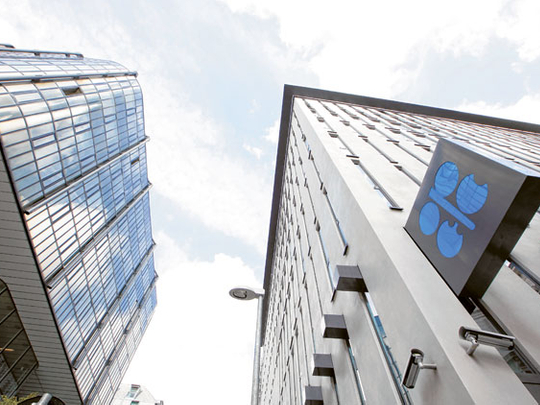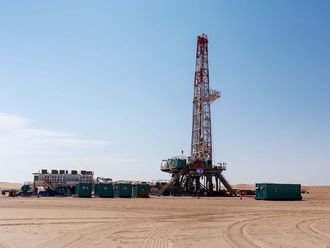
Dubai: Iran Oil Minister Bijan Zanganeh said on Tuesday that Opec has no plans to hold an emergency meeting to discuss the recent slide in oil prices, Iran’s oil ministry news agency Shana reported.
Brent crude oil fell towards $92 a barrel on Tuesday, pushing towards 27-month lows as weak demand and ample supply outweighed the price support from a weaker dollar.
Oil ministers from the Organization of the Petroleum Exporting Countries (Opec) are scheduled to meet in Vienna on November 27 to consider whether to adjust their output target of 30 million barrels per day (bpd) for early 2015.
“For the moment, there is no plan for an Opec emergency meeting,” Shana quoted Zanganeh as saying.
He said Opec would tolerate the oil price fall “until Opec majors (decide) to cut their production”, according to Shana.
The drop in oil prices below Opec’s preferable level of $100 a barrel has triggered calls by some members for a supply cut, but core Gulf members are betting that winter demand will shore up prices, suggesting the group is no closer to any collective step.
To balance its budget, Iran has among the highest oil-price needs within the 12-member Opec and often supports measures likely to boost prices. Saudi Arabia and other Gulf Opec producers have lower pain thresholds.
Zanganeh appeared to downplay Saudi Arabia’s cut in the official selling price for its oil last week, which has sparked speculation among traders of an emerging Opec price-cutting war to defend market share.
“The actions of certain countries in reducing the price of their oil cannot be termed as a price reduction war,” the semi-official news agency Mehr quoted the oil minister as saying.
Separately, unidentified official at state-run National Iranian Oil Company was quoted by Mehr as saying: “Iran will supply oil according to the prices of the international market and has no plan to enter a price war that has been started by the Saudis.” Opec’s next meeting in November will be closely watched to see whether it leads to a supply cut.
Opec’s output is climbing, reaching 30.96 million bpd in September, its highest since November 2012, due to further recovery in Libyan production and higher levels from the Gulf producers, according to a Reuters survey.












